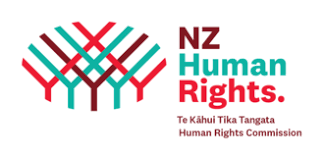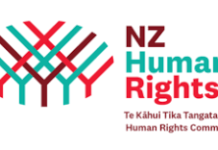The acting Race Relations Commissioner is very concerned to hear of reports that the Minister of Justice is working to reduce references to Māori experiences of racism in the National Action Plan Against Racism (NAPAR).
Yesterday the National Iwi Chairs Forum announced they have formally withdrawn from the working group for NAPAR noting that the Government has signalled changes to the plan, including a reduced focus on institutional racism and colonial racism against Māori.
In 2017, the Committee on the Elimination of Racial Discrimination recommended that Aotearoa New Zealand develop a NAPAR. In 2019, the Government agreed to develop a plan in the wake of the terrorist attacks on Christchurch masjidain on 15 March.
Acting Race Relations Commissioner Saunoamaali’i Dr Karanina Sumeo says “I’m seeking an explanation from the Minister because I’m extremely concerned that this could in effect be denial of the experiences of racism that Māori endure constantly in Aotearoa.”
“Racism in Aotearoa has deep historical economic, cultural, social, political, and spiritual roots, enabled by individuals and within institutions. The ongoing harms to and losses for Māori, must therefore be addressed in a NAPAR if we truly want to eliminate racism,” says Sumeo.
A 2021 study found that 93 percent of Māori in Aotearoa experience racism every day, including instances such as racial profiling when shopping, being less likely to receive service because they are Māori, the invalidation of Māori knowledge, misrepresentation in the media, mispronunciation of Māori names, and interactions involving micro and macro aggressions.
The Commission’s Tino Rangatiratanga Shared Leader Julia Whaipooti says “The reality is, if you are Māori, you are amongst the most likely to experience racism in Aotearoa.
“Such experiences are not just one off-isolated events, but often at a systemic level due to the historic and ongoing suppression of Māori by the process of colonisation.
“This continues today with many Tangata Whenua saying they can feel unsafe in almost every environment.”
Whaipooti says it is vital that the Government demonstrate it is listening, and is focused on addressing racism against Māori, as well as the many other peoples and cultures who also experience racism in Aotearoa, including Asian, Pacific, and African peoples, and Islamic and Jewish communities.
Māori experiences of racism, barriers to Indigenous rights, as well as discussion about the foundational role of te Tiriti o Waitangi in the country’s constitution, are the focus of a visit by the UN Special Rapporteur on the Rights of Indigenous Peoples, Francisco Calí Tzay, this week.
The Special Rapporteur is meeting with Māori organisations, iwi and hapū leaders, Indigenous legal experts, and Te Kāhui Tika Tangata Human Rights Commission.
Years of work building toward the National Action Plan Against Racism
The NAPAR is being developed by the Ministry of Justice on behalf of the government. Te Kāhui Tika Tangata Human Rights Commission was asked to undertake preliminary engagement with Tangata Whenua and civil society, to record their experiences of racism and their thoughts about what should be in the National Action Plan. The report Ki te whaiao, ki te ao Marama sets out what the Commission heard and makes recommendations to the Ministry. A further report, Maranga Mai,sets out the impact of colonisation, racism and white supremacy on Tangata Whenua in Aotearoa New Zealand.
Subsequently, a working group was convened in 2022 to develop a draft action plan for public consultation, co-led by the Ministry of Justice and the National Iwi Chairs Forum, and consisting of a Tangata Whenua caucus, a Tauiwi caucus and a State sector caucus.
National Iwi Chairs Forum have said their involvement is no longer tenable because of the Government’s planned changes to NAPAR, which they say are targeted at reducing the focus on colonial racism against Māori and are contradictory to an equitable partnership. NICF also highlighted the numerous actions from the Government that specifically target Māori, and which consequently undermine a standard of good faith for effective collaboration.




